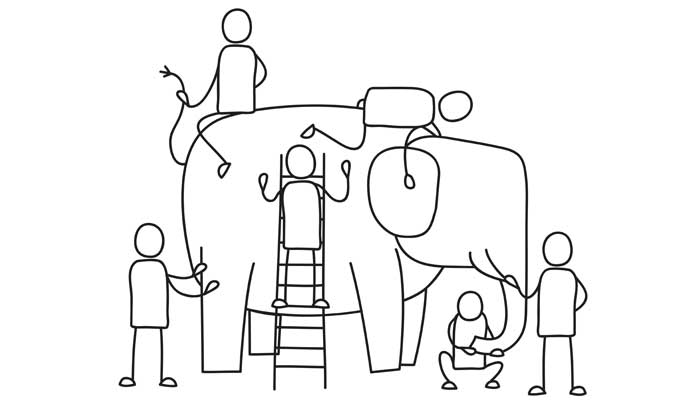I decided to write this post in response to some of the comments I’ve received from other articles on my blog — particularly the kundalini energy interview I did with Jeanette Amlie and my post on some of the dangers of meditation.
I’m not in a position to provide direct advice or analyse your experiences. I’m just someone on the internet after all who doesn’t know you. However, hopefully what I’m about to say might help.
Who to speak to?
10 years ago, I had a spontaneous out of body experience which at the time I would have described as being unpleasant. I didn’t know who to speak to or what to do with the experience. Inevitably, I turned to the internet and read up all I could, only to find that people had all sorts of mixed conflicting opinions.
If I’d heard of a transpersonal psychologist or therapist back then, this is who I would have gone to speak to first — but this is just my opinion. It doesn’t mean seeing a transpersonal psychologist would be right for you.
If you go to regular meditation classes with a teacher, perhaps discuss your experiences with him or her if you trust them and feel comfortable enough to. If you don’t and you don’t know who to speak to, a therapist who has trained in transpersonal psychology might be able to help you or at least direct you to someone who will.
Reading about transpersonal psychology will give you some insight, but to give you a brief description now — it’s basically a branch of psychology that incorporates the spiritual and transcendental parts of the human experience, and it’s not affiliated with a particular religion or spiritual practice.
I’m not trained in transpersonal psychology but I have had the pleasure of speaking to a therapist who was and found her to be incredibly refreshing and insightful.
Should you talk about your spiritual or meditative experiences?
For several years I couldn’t understand why some meditation teachers and authors of spiritual books would tell you not to talk about your spiritual experiences. I’ve personally felt that there were some things I couldn’t not talk about, and inevitably, my intellectual mind wanted answers.
I now understand why some teachers would say this. Meditation is such a personal experience, and although there are common similarities, it’s ultimately a very personal journey for everyone.
When you start to talk about what you experienced with anyone, you might inevitably face people disagreeing with you, not understanding, or feeling inferior or superior.
This is just one argument, that can be misleading, because certainly if you’re new to meditation or you’ve had a spontaneous kundalini awakening or out of body experience — or any kind of spiritual experienced that can’t be explained rationally or by science, it’s natural to want to talk.
When it comes to spiritual practices, people inevitably have conflicting opinions, so use your intuition and find someone you can really trust who you feel comfortable with.
There’s an ancient story I’ll use to illustrate this point which you might already have heard of. It’s called The elephant and the blind men. Follow the link for a detailed explanation. Essentially, thought, the story is about six blind men who are told that there is an elephant in their village.
None of these men know what an elephant is, so they go to visit the elephant. Each man feels a different part of the animal, and inevitably they all argue on what the elephant is really like. Each man is right, and speaks partially the truth — they’re just different perspectives of one whole.
You might find someone who can speak the whole truth. But, sometimes, it’s not necessarily answers that we need from someone else, but someone who will listen objectively, and accept what you’re saying without judgement. And then sometimes, it’s up to us to seek the answers for ourselves with time.
Seeking answers and dealing with limited information
Talking with the right people certainly helped, but ultimately, I had to come to terms with the fact that there were some things my intellectual mind just wasn’t going to comprehend or be able to put properly into words — at least in the few weeks after my OBE — and I think this is OK.
I think of books I’ve read more than once and thought I got the message or got what the book was talking about the first time round, only to discover after reading it again, that I’d missed loads of things. I figure that this will continuously happen throughout my life — including with meditation. In 10 years time, I’ll probably read this and have a lot more to say, but for now, these are my thoughts, which come from limited experience and knowledge.
Perhaps, mentally asking ourselves the questions we seek answers to will help. In the book, the Spiritual Teaching of Ramana Maharshi, this is what was advocated. Maharshi, made the argument that asking yourself the question ‘Who am I?’ would eventually give you the answer.
Sometimes when I don’t know where to find the answer to something, I just ask my brain and then find that when I wake up I have more clarity or over time, I might be drawn to certain books or people that will help me to understand something better.
Final thoughts
I went on a 10 day silent Buddhist Vipassana course last year which was my first real insight into Vipassana meditation. I’m not necessarily recommending this, but I found some of the Buddhist teachings to be incredibly useful — particularly the emphasis on being equinaminuos. You can read more about my vipassana experience here
Practising equanimity means to observe without judgement. It doesn’t mean detaching yourself from your experiences or thoughts — it means that you’re recognising and acknowledging what you’re experiencing — this could be thoughts, sensations, visual images, emotions… Again, I’m not advocating Vipassana, but for me, this philosophy made a lot of sense.
I also think it’s important when going forward with your meditation practice not to get too caught up in certain experiences or try to get back to what you once experienced, even if it was really blissful. I know this sounds counter intuitive, but meditation does work best when you start each session afresh with no preconceptions.
Finally, I’d like to finish by saying that if you are feeling worried, confused or unsettled by a meditation or spiritual experience, there are plenty of people who can help you and provide support. And if you’re looking for a book that will help to explain meditation more clearly, I found that Inside Meditation: In search of the Unchanging Nature Within was one of the most insightful books I’ve read on the subject.
Equally, if you have any advice or experience related to this topic or books you’d like to share that might provide some clarity, please post below.


